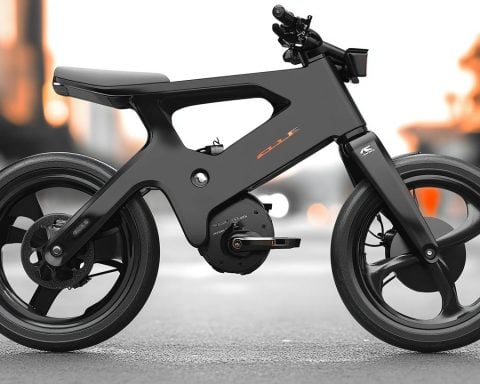The push towards sustainable transport in France faces a setback as the government announces the abrupt end of the ecological bonus for electric motorcycles and scooters. Previously, a generous incentive of up to 900 euros was available for buyers, reaching as high as 1,900 euros in overseas territories.
Recent reports indicate that the government plans to eliminate this financial aid as soon as a new decree is activated, anticipated to be published shortly. This change comes amid the broader strategy to tighten public spending, reflecting the country’s fiscal challenges.
This decision could have significant repercussions for consumers inclined towards eco-friendly two-wheelers. The withdrawal of financial support is likely to discourage potential buyers, potentially hindering the growth of the electric vehicle sector, which already struggles to secure a solid market foothold.
In contrast, the ecological bonus for electric cars remains, albeit with revised figures based on household income. Lower-income families can still access up to 4,000 euros, while higher-income households are eligible for a reduced 2,000 euros bonus. Additionally, social leasing options will persist into 2025 for those needing further assistance.
Despite the unfavorable turn for two-wheelers, utility vehicles are not facing complete abandonment. While they lose the bonus, they still have access to funding through energy savings certificates, providing some support to this segment amid the shifting incentives landscape.
France’s Shocking Decision: What the End of Electric Scooter Bonuses Means for Technology’s Future
The recent decision by the French government to cease the ecological bonus for electric motorcycles and scooters could have broader implications than anticipated. Despite previous incentives offering up to 900 euros in mainland France and 1,900 euros in overseas territories, the sudden withdrawal marks a significant pivot in France’s transport policy.
Impacts on Sustainable Transport and Technology
This policy change arrives as many countries strive to embrace more sustainable forms of transportation. Electric two-wheelers offered an accessible entry point to the electric vehicle (EV) market due to their affordability compared to electric cars. However, with the removal of financial incentives, there is a risk that potential buyers will be deterred, potentially slowing the adoption of green transport solutions.
Electric motorcycles and scooters are at the forefront of new technological advances, offering a glimpse into cleaner urban mobility. These vehicles can drastically reduce emissions, especially in congested city environments, and help lower noise pollution levels.
Interesting Facts and Controversies
While electric vehicles have long been seen as the key to reducing our carbon footprint, the decision to end bonuses for electric two-wheelers introduces controversy. Why are cars still receiving support while more compact and efficient modes of transport are not?
This discrepancy raises questions about policy priorities and whether financial motives outweigh environmental considerations. Interestingly, social leasing options remain available for cars, highlighting a continued, albeit modified, commitment to promoting electric cars over smaller two-wheelers.
One notable advantage of electric scooters and motorcycles is their ability to easily navigate urban environments, reducing traffic congestion. However, they could face setbacks without adequate support, especially as public infrastructure may still need to be fully conducive to widespread adoption.
Advantages and Disadvantages
Advantages:
– Encourages innovation in battery technology and electric powertrains.
– Potential partners and startups in the electric two-wheeler sector receive indirect support through industry attention.
– Environmental benefits include reduced air pollution and traffic congestion in crowded urban centers.
Disadvantages:
– Financial incentives’ removal may slow market growth, impacting smaller manufacturers reliant on subsidies.
– Potential buyers may shift back to fossil-fueled options due to higher upfront costs.
– Current infrastructure may need to accommodate the sudden influx of users if electric two-wheeler progress stagnates.
Key Questions and Answers
Why does this matter for technology?
Without incentives, there may be less consumer-driven demand for further advancements in electric scooter technologies. This could stagnate an area ripe for innovation in battery capacity, lightweight materials, and sustainable manufacturing practices.
What are the potential economic impacts?
The impacts could be profound, affecting manufacturers and the broader electric vehicle supply chain. It might also create an uneven playing field, where electric cars continue to receive support, whereas smaller electric vehicles do not.
Is there hope for the revival of incentives?
The rapidly evolving landscape of sustainable transport and the growing public awareness of climate issues may prompt future policy revisions. Additionally, continued advocacy from environmental groups and manufacturers may influence decision-makers.
For more insights on sustainable transport efforts and technologies: U.S. Department of Energy, International Energy Agency (IEA).



















